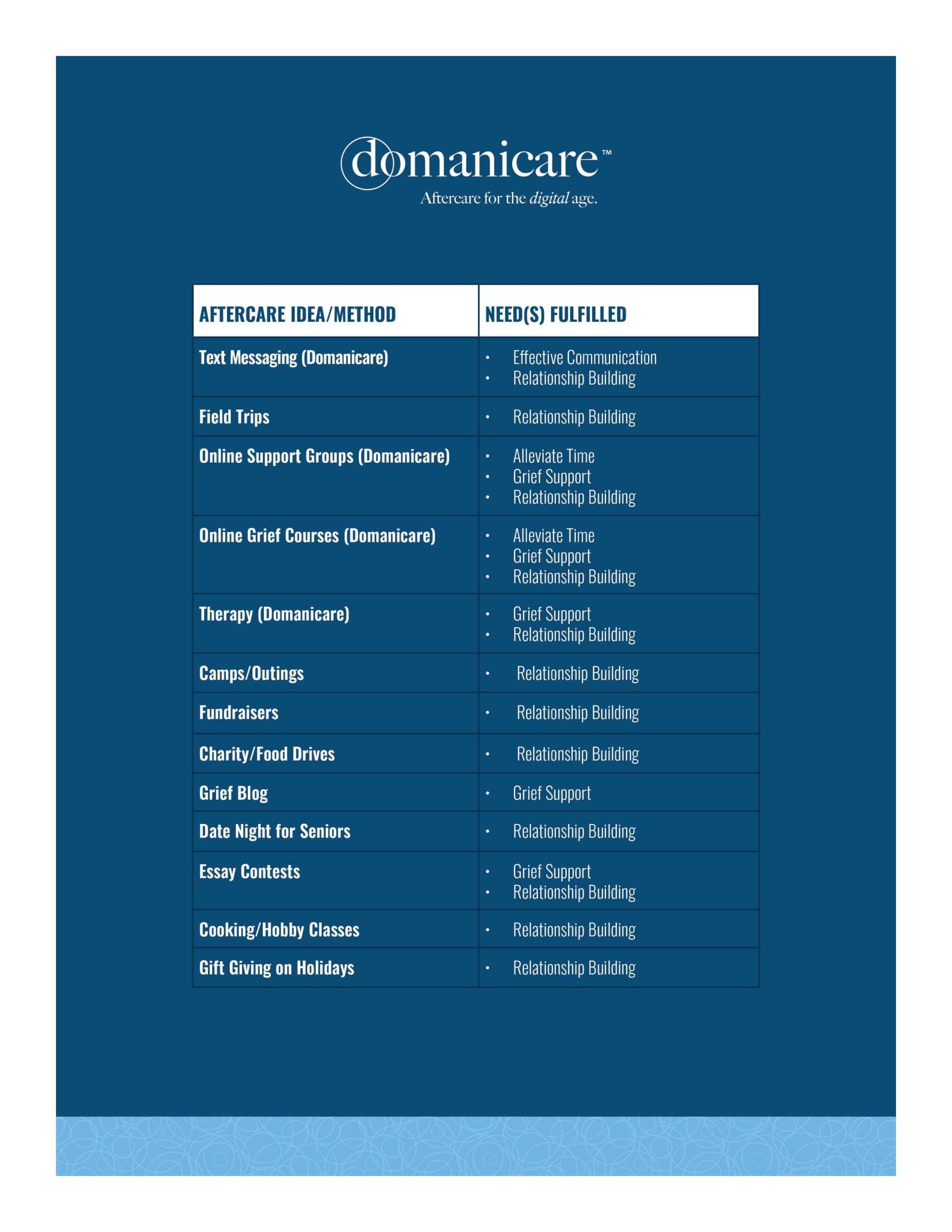The Role of Aftercare in Your Funeral Home Business Plan
Good aftercare services do exist — but great aftercare services are harder to come by.
The Key Features of Effective Aftercare
- Provide healing, support, and resources to grieving families.
- Alleviate, not add to, the funeral home’s day-to-day responsibilities.
- Bridge the relationship gap between funeral homes and their families long after funeral services are given.
- Establish an effective, unobtrusive, and meaningful communication method.
The problem with most aftercare ideas is that funeral homes carry the burden of aftercare responsibilities (building, implementing, and maintaining the aftercare program).
Funeral professionals generally do not have a large abundance of spare time — that’s why a good aftercare service should alleviate time while increasing leads for funeral homes.
Some companies have sprung up to plug the hole that exists in aftercare services, but they actually end up piling too many responsibilities upon the shoulders of the funeral director.
As the funeral director, it is your job to implement compassionate aftercare into your business plan effectively.
So how do you do that?
By the end of this article, you’ll know exactly what you need to do in order to create a manageable, efficient, and effective aftercare program.
Healing and Grief Support
Alleviate the Burden of Time
Bridge the Relationship Gap
Establish an Effective Communication Method
What is Domanicare?
- Domani for Grief and Loss
- Live Text Responders
- Review Generation
Creating an Effective Aftercare Program
- Provide Grief Support
- Alleviate Time
- Relationship Building
- Effective Communication
Funeral Home Articles



